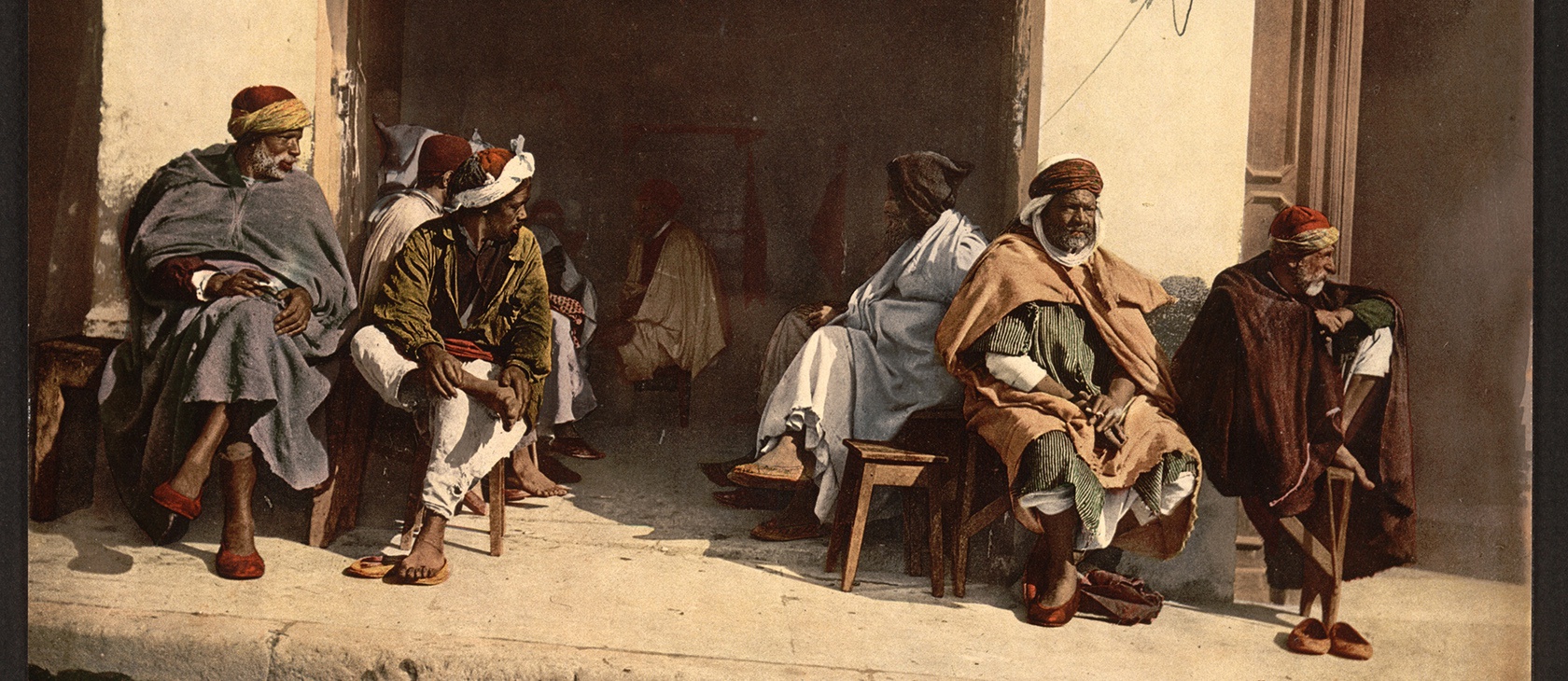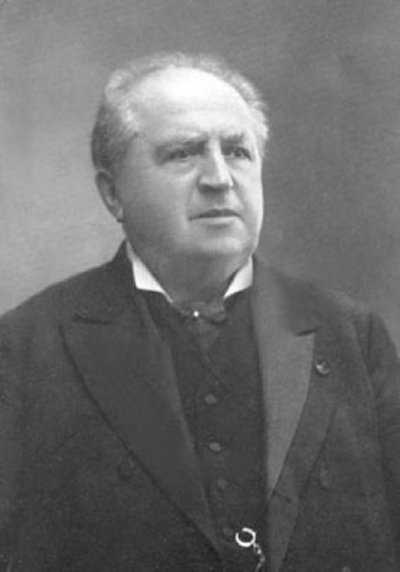Part I: The politics of Islam in Algeria
Islam in Algeria requires a short explanation. The Muslims in Algiers, insofar as they are Berbers, are of weak faith. To the extent that they abide by Islamic tradition, they are primarily Malikites, although Hanafism is steadily gaining ground. But they hardly bother with the faith’s formal demands, quietly put forward their own traditions under the name of adaa, and participate little in the worship of the mosque. Although they felt deeply aggrieved by the confiscation of haboes -- goods which belonged to the mosques, the imams and muftis wield little authority here. Yet they are pure Muslims, even tending toward frenzied outbursts from their fanatical hearts, which suggests that their faith has a much more mystical than ritual character. Only the group of M’zabim that live at the four oases in the south exhibits a more Wahhabist tendency; otherwise, Muslims in Algeria trend almost exclusively toward the marabouts and the religious orders with their zaouias. These marabouts form separate families and so prefer that their men marry a marabout daughter, especially if she belongs to the shorfa (that is, to the line of sharifs), since as a descendant of Muhammad’s daughter she is highly regarded. The marabouts most resemble the dervishes, but of a somewhat higher ranking since even after their death they are venerated at their tombs.
It must be granted that these marabouts as a rule are highly developed people, very intelligent, and above all ethical and religious on a very high plane.
The religious orders to which the marabouts belong play a very large role in Algeria and the presence of Pan-Islam is felt on every side. Depont and Coppolani, who closely studied this whole congeries in Algeria (Coppolani himself having been murdered out of fanatical hatred on one of his tours), consider it beyond doubt that it is directly connected with organized Pan-Islam. Virtually every insurgency since 1837, beginning with the opposition of Abd-el-Kader, has originated with these marabouts and religious orders. Boe Mara and Boe Bagha are equally famous founders of later resistance. It must be granted that these marabouts as a rule are highly developed people, very intelligent, and above all ethical and religious on a very high plane. Taken together the religious orders in Algiers have a membership of 300,000, including 349 foundations—the zaouias. The Quadrias, the Chadelia, the Aissaea, the Taibia, the Rahmania, and the Senoessi are particularly well represented in Algeria. Each order is ruled by a sheikh, who is unconditionally obeyed by the khoeans or members. Under him is a caliph. Women also belong to the orders under the label of moqadem. The sheikhs annually collect large sums of money from both members and non-members in three types of payment. First, each member must pay an annual fixed duty of between ten and one hundred francs. Secondly, they pay an enrollment fee. And finally tiaras are collected as obligatory donations during visits to the zaouias and tombs. These three duties raise three million, one-and-a-half million, and another three million francs, respectively, for a total of seven million francs annually. One share of these funds is distributed among the unremunerated imams, another goes to education and beneficence, but most is sent abroad to support the general Muslim movement. These orders do not by any means always take a hostile position vis-à-vis the government. In fact, some are on such good terms that in ordinary times the government can count on them. But this can change in a moment. And if France ever finds itself in international difficulties again and Algeria were required to send some of its troops into action, the flames of mystical fanaticism developed by the marabouts and their orders could once again spread rapidly. For it is possible to build on an ordered spirituality but decidedly not on mystical passion. The kindling for this mania is always at the ready and one spark is enough to set it ablaze.
France’s hold on Algeria, therefore, is precarious. True, the more than four million natives that call it home must defer to the inevitable but that does not mean they happily accept this state of affairs. The Latin powers have a common predilection not only to govern the economies of their colonies but also to dominate the whole domain of public life. This is the ideal pursued by France in Algeria, but such total subjugation encounters insurmountable objections, particularly from the Islamic population. Such a program of entire conquest is only possible in a situation as in America, where the original inhabitants are driven out and the whole land is populated with the invaders’ countrymen. A system like that succeeds rather quickly. But this is not the situation in a country like Algeria. France would have met with much less opposition if from the outset they had followed the rule they are now pursuing in Tunisia. Even if overcrowding in France would have supplied more colonists, the native population would still have proven to be a significant block of resistance. The constantly changing rules of the French regime, and no less the specific errors acknowledged even by those currently in leadership, have hardly been conducive to the prestige of the supreme authority in the land. And when the native population grows as quickly as in Algeria, you never know what the future holds.
But this does not mean that France does not have a right to be proud, all around, of its Algerian undertaking. True, what England has accomplished in Egypt, not least in so short a time, might have to be counted an even greater success. But this is not due to England’s greater expenditure of energy; rather, almost exclusively to the more favorable conditions of the country and its people. France’s expenditure of energy in Algeria has been much greater. In terms of money and troops, France has contributed and sacrificed much more there, and has exhibited a wonderfully persevering spirit. There was no need for this in Egypt. France attempted to take possession of its colony by “assimilation,” a hopeless task from the outset that would never succeed. But it cannot therefore be denied that the attempt to assimilate a colony rates as a higher ideal than achieving peace by force of arms. Yet since such a quest was bound to face incredible difficulties in Algeria, one cannot sufficiently admire the ingenuity, the organizing spirit, and the tireless dedication that France has displayed there for more than three-quarters of a century. The economy has made giant strides and a solid foundation has been laid for further progress. For now, French authority has been firmly established deep into the South. Many former abuses have been cleared away, and the hygienic conditions have steadily improved. The more Paris comes to understand that decentralization will offer Algeria, too, the best chance for preservation and thus treats the colony accordingly, the more France will be able to make the claim that all its possessions in North Africa—which currently extend from Darfur to Senegal and from Algiers to French Congo—not only bear witness to its national resilience but have significantly raised its international position.
Part II: The Politics of Islam in Morocco
One can certainly not applaud European politics in relation to a weak state such as Morocco. In the fifteenth and sixteenth centuries Spain at least still pursued the high ideal of introducing Christianity [in its colonial possessions]. Now people talk about bringing in a higher civilization. But this is really a side issue since they are only really concerned with securing more markets for their industry. From an ideal perspective it is highly doubtful whether the civilization thus brought to life is actually any superior to the distinctive civilization that a people may have developed from entirely different principles. Yet the current imperialist movement, which is materialistic in its motive, is unstoppable for the time being. Countries are compelled to give the Europeans entry. Should a conflict arise, revenge is typically bloody and the weaker state is held financially responsible. If it is unable to pay, financial aid is readily forthcoming which places the noose of debt around its neck, initiating the process of financial strangulation. So it went in Tunis and so will it soon go in Morocco. Which European power gains most from this depends entirely on the commercial activity it develops. Germany’s outstanding performance in this regard had the happy result of giving Europe a voice in the matter and ensuring an open door. In Morocco, Belgium got there ahead of us. King Leopold even once visited the Moroccan port cities by yacht while posing as Count Ravenstein. And yet where sugar, candles, and tea are the chief commodities, the Netherlands could have profited from trade with Morocco just as much as did Belgium, something we have pretty much ignored. As signatories to the Madrid and Algeciras conferences, we have a legitimate voice in these matters and a responsibility to both support all that the Moroccan government has kept intact while at the same time guarding against “closing of the door” there.
It is not inconceivable that France will gain more ground in Morocco, which in itself could mask a grave danger. A danger for France itself because it has no colonists to do the colonizing. Should the population soon double in Morocco as it did in Algeria, then forty years from now the north coast of Africa will represent an Islamic power of something on the order of forty million people, even if one can be sure the Berbers will never allow themselves to be assimilated. France certainly could set aside an army corps just for Morocco, but thus significantly weaken its power in Europe. For Europe the danger lies precisely here. Germany is simply too far from Morocco to operate effectively there with the power of its fleet or by landing troops. Serious conflict between Germany and France over Morocco would therefore threaten central Europe with the most serious danger. After all, the fact remains that the key to the gate of Morocco lies not in Tangiers but along the Vosges Mountains.
Algeria: June 25, 1908
Morocco: September 26, 1908
This commentary was excerpted from On Islam by Abraham Kuyper (Lexham Press, Acton Institute, 2017). The book is available for purchase in the Acton Shop.
Interested in learning more about Kuyper's insights on the Islamic faith? Join us for our upcoming event, Book Launch and Panel Discussion: Abraham Kuyper’s Perspective on Islam, February 15 in Grand Rapids, MI.




